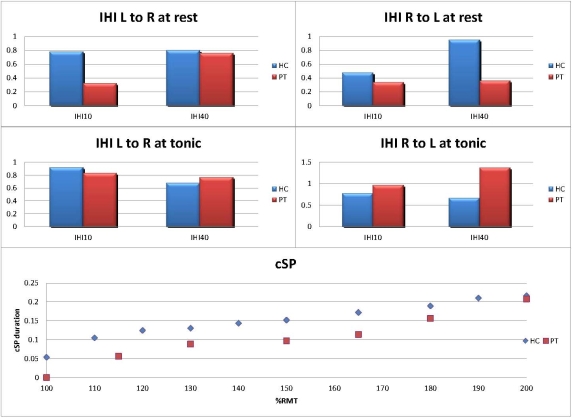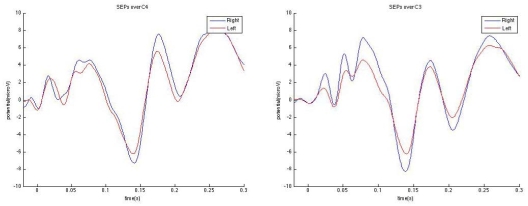Session Information
Date: Wednesday, June 22, 2016
Session Title: Neurophysiology (non-PD)
Session Time: 12:00pm-1:30pm
Location: Exhibit Hall located in Hall B, Level 2
Objective: To understand pathophysiology of mirror movements (MM) in Moebius syndrome patients by performing comprehensive neurophysiologic studies in two patients.
Background: MM are involuntary movements on one side of the body that mirrors intended movements on the other side of the body. Pathological MM have been recently described in Moebius syndrome, a congenital condition characterized by non-progressive facial weakness in association with limited abduction of one or both eyes.
Methods: We conducted neurophysiologic studies including electromyography (EMG) and somatosensory evoked potential (SEP) in two patients with MM and Moebius syndrome (patient 1: 9 year-old female, patient 2: 54 year-old male). We also conducted TMS on patient 2 and an age matched healthy control to evaluate interhemispheric inhibition (IHI) and cortical silent period (cSP).
Results: EMG recording of ballistic movements (abduction of the thumb) showed that the timing of EMG onset was almost simultaneous on both hands in both patients. TMS on patient 2 showed that interhemispheric inhibition (IHI) at rest was higher compared to healthy control, but it was more reduced with tonic activation of bilateral index fingers. cSP duration with dominant motor cortex stimulation was shorter in MM patient compared to healthy control (figure 1) . SEP response was shown on bilateral somatosensory cortices from unilateral median nerve stimulation in both patients (figure 2)
. SEP response was shown on bilateral somatosensory cortices from unilateral median nerve stimulation in both patients (figure 2) .
.
Conclusions: Our study suggests that MM in Moebius syndrome are due to persistent ipsilateral corticospinal tracts in addition to dysfunctional interhemispheric connection. Comparisons to normal are only preliminary since there is only one control subject. Increased IHI at rest could be compensatory mechanism. Mirroring in SEP suggests that pathology of bilaterality in Moebius syndrome is spread beyond the motor system.
To cite this abstract in AMA style:
H.J.S. Cho, P. Panyakaew, M. Hallett. Mirror movements in Moebius syndrome: Mirroring beyond movements [abstract]. Mov Disord. 2016; 31 (suppl 2). https://www.mdsabstracts.org/abstract/mirror-movements-in-moebius-syndrome-mirroring-beyond-movements/. Accessed July 16, 2025.« Back to 2016 International Congress
MDS Abstracts - https://www.mdsabstracts.org/abstract/mirror-movements-in-moebius-syndrome-mirroring-beyond-movements/
